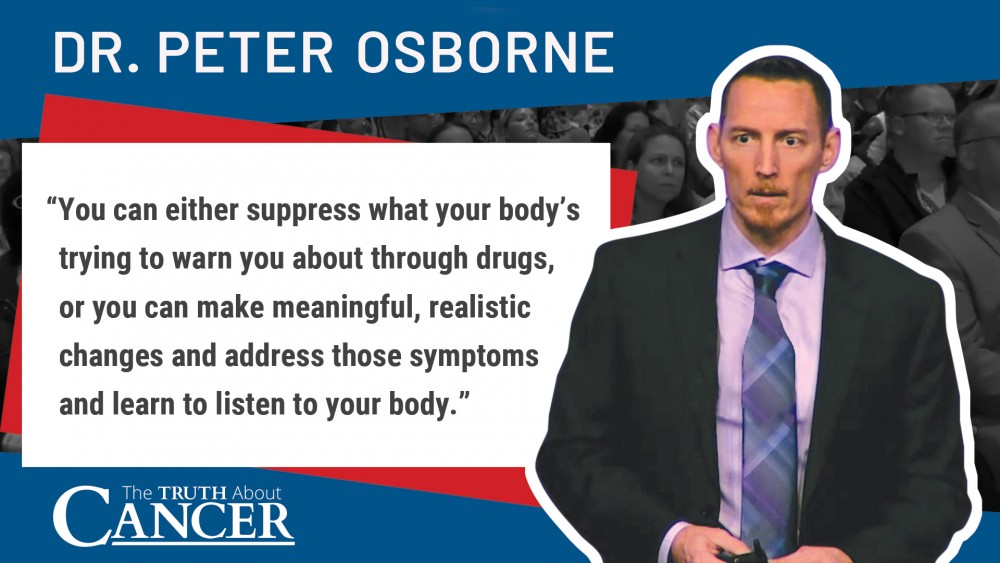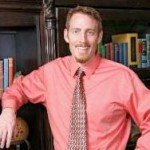Video Transcript: 3 Choices for a Healthy Life
Ty Bollinger: Peter Osborne says “Don’t think of disease as something that you have, think of disease as a symptomatic genetic expression of your choices that you’ve made, accumulated over time.”
Charlene Bollinger: Learn from today’s video about how making the right choices for your body chemically, physically, and spiritually plays an important role in preventing disease. It’s time to take responsibility for the health of your body and make the right choices for a disease-free life.
Dr. Peter Osborne: So, when you’re in the mindset of your genes not being bad but your choices are bad, if you’re learning bad choices and thinking that those choices aren’t bad… then you’re making bad choices unintentionally, right? There’s a saying, “You don’t know what you don’t know.”
And so, the choices. We can identify the choices in the three outer edges of this triangle. Chemical choices, emotional/spiritual choices, and physical choices.
So, if we briefly just talk about each one, what is chemistry? Biochemistry. I remember being in graduate school, and what turned me on to all of this was that I was an amateur bodybuilder. And so, I was looking for ways to be better and stronger and recover more.
And so, I was turned on to biochemistry because biochemistry is nutrition. It’s basically—biochemistry is nutrition, only in science geek speak. And when they’re teaching you biochemistry in graduate school, they use big, heavy words with multisyllabic phrases. And if you don’t study it well enough, you don’t ever know. So, a lot of doctors walk out of a biochemistry class not understanding that flavin adenine dinucleotide is vitamin B2. Right?
And so, chemistry is nutrition. It’s vitamins, it’s minerals, it’s carbohydrates, proteins, fats, it’s water, it’s the fundamentals of life. If you’re putting the wrong chemistry in your body, or your body is lacking the right chemistry, then things can start to go wrong. And those are choices. You get to choose what you put in.
Now sometimes you don’t get to choose. If you live in Houston like me, there’s 42 prescription medications found in the drinking water after the city gets done filtering it.
So, if you don’t know that and you’re not running extra filtration through your house, you’re getting exposed to chemistry you didn’t even know you were getting exposed to. But you can choose food. You can choose where it comes from, you can choose who farms it, you can choose where you buy it, right? So, these are choices that we have – chemical choices.
And then there’s physical. There’s a saying “Square tires don’t roll.” Structure dictates function. Physical has to do with the physical body. So, some people are overweight, some people are underweight, some people are underweight and under-muscled, some people are overweight and under-muscled, some people are overweight and over-muscled. There’s all kinds of combinations here.
But the physical characteristic of the human frame is very important, and the physical attributes. And the things that you do physically are very important.
How many of you have a desk job? How many of you sit four plus hours a day? Most of you in the room.
So, understand that sitting like that creates cancer. It’s a physical choice, but chronic sitting suppresses cerebrospinal fluid circulation. So basically, it prevents your brain from getting adequate nutrition. Chronic sitting causes a suppression of lymphatic fluid function.
You guys know what the lymphatic system is? It’s how we fight cancer. So, if you’re sitting, physically sitting, for long periods of time, over the course of a day, and you multiply that job times 30 or 40 years before you retire, you’ve spent literally years sitting, suppressing lymphatic fluid. So, physical has to be equally as important as chemical.
And then there’s emotional/spiritual. We live in a world today where it’s almost become unacceptable to be spiritual. We live in this kind of—I think it’s an Alice in Wonderland type of world sometimes. Up is down and down is up. But you’ve got to be right in the head, and you’ve got to be right emotionally and spiritually.
And some people have history of trauma. Well, probably everybody has a story. Does anyone not have a story of past trauma or past somebody doing you wrong or treating you wrong?
I think we all kind of have a background where we have some of that. But if we have that background and we don’t deal with it, we don’t acknowledge it and deal with it and cope with it and make it right in our own mind, that can create disease just as easily.
So, think of these three elements as switches, or the ability to turn on or off the switches of your genetic code. There’s a concept of disease. We all get told – we go to the doctor – we have this disease. “You have X, Y, or Z disease.” And what I want you to understand is you don’t have a disease.
What you have is a genetic expression that is adapting to your poor choice. That’s not disease. When a doctor says, “You have cancer,” the first thing that most people think is “Oh my gosh, I’m powerless. Let me give all my power to you.” And then the doctor writes a script for chemo and radiation and surgery and then takes away your power of choice and says “There’s nothing you can do about this cancer. Diet and nutrition aren’t important.” And you’re going to go this path, because this is “Medicine,” right?
What I want you to understand is don’t think of disease as something that you have, think of disease as a symptomatic genetic expression of your choices that you’ve made, accumulated over time. Right? Damage over time equals the expression of symptoms that doctors prescribe drugs for.
So, you can either suppress what your body’s trying to warn you about through drugs, or you can make meaningful, realistic changes and address those symptoms and learn to listen to your body. And the way we do that is through making better choices.
Ty Bollinger: Thanks for watching. We hope you liked today’s video!



















Leave a Reply